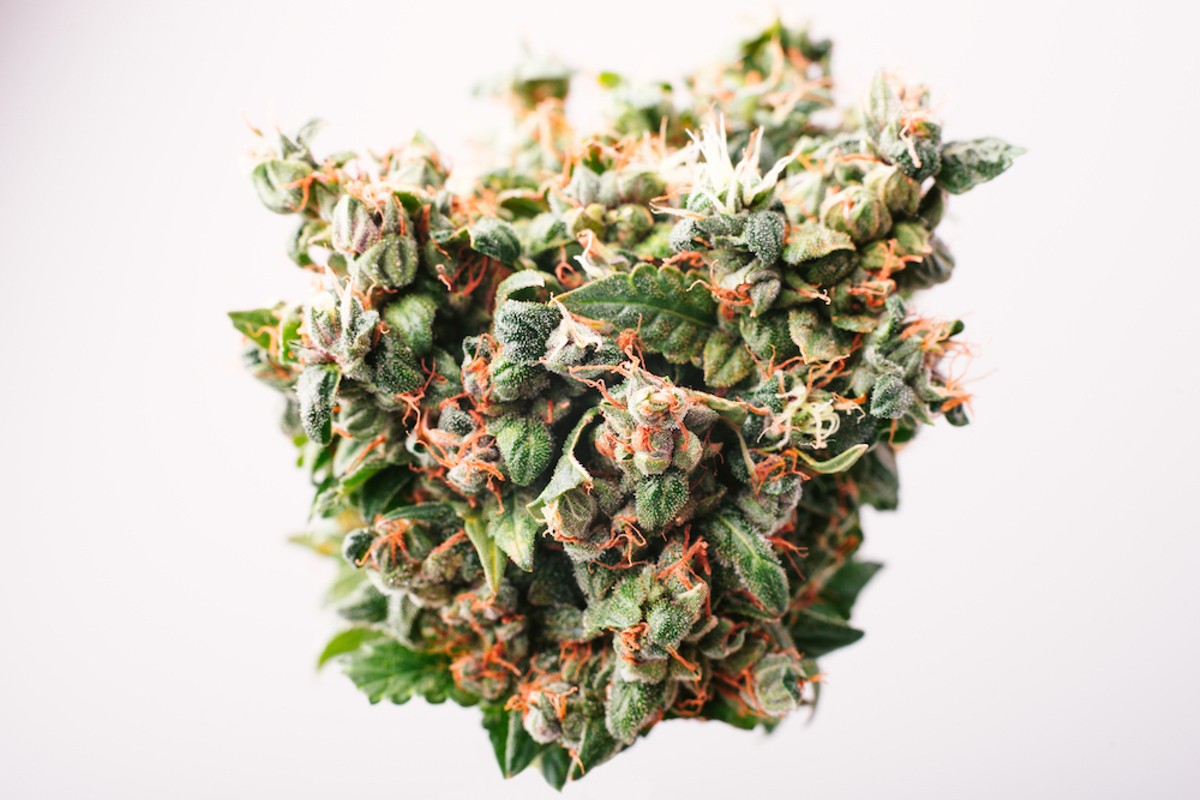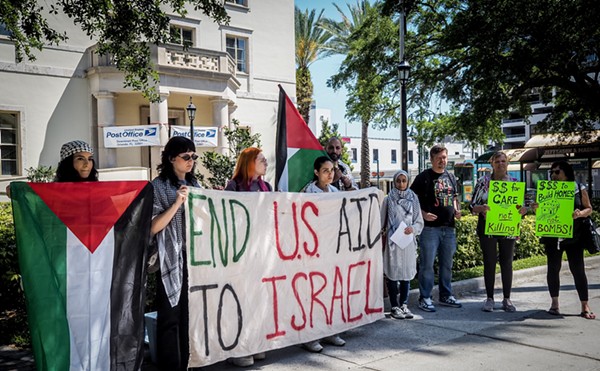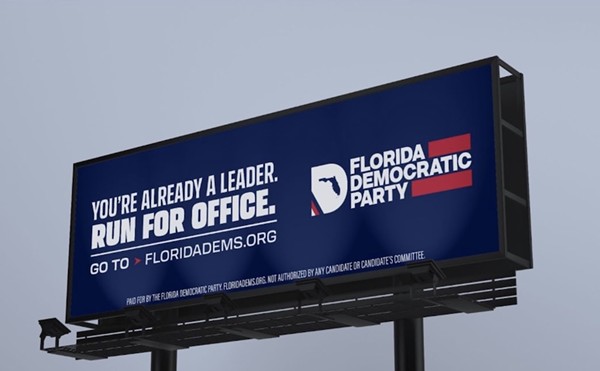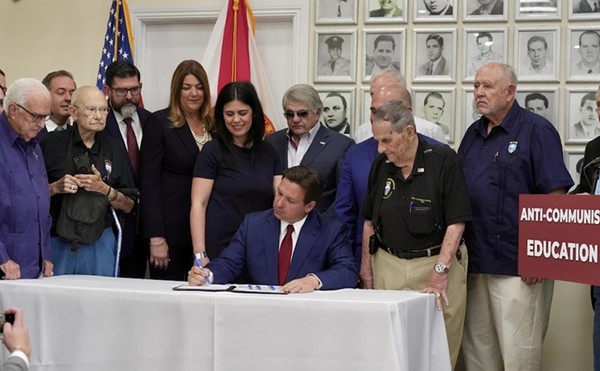The passage of Amendment 2 in November gave lawmakers and the state Department of Health six months to establish new rules for Florida's medical marijuana program. So far, they're off to a rocky start.
State health officials proposed to essentially adapt the existing medical marijuana system to take in the new patients created under Amendment 2. At public hearings, critics disparaged the potential measures, saying that by limiting the number of nurseries to seven and making growers also be involved in the dispensary process, the state was allowing dispensing organizations to become monopolies that could control the market. Advocates have also argued the proposed rules were against the spirit of Amendment 2 because it let the Florida Board of Medicine determine additional "debilitating conditions" that would fit the requirements of the law, instead of leaving that decision up to individual doctors.
Meanwhile, in Tallahassee, Florida legislators have drummed up six different plans to change the state's marijuana program. While some bills are similar, patients argue other measures create burdens for them and ignore the will of Florida voters. Here's a quick rundown of the proposed bills:
The Brandes Plan: Proposed by Sen. Jeff Brandes, SB 614 would ax the state's medical marijuana system that only allows for seven dispensing organizations and open up the market up to other medical marijuana treatment centers. The bill would also allow nurseries, processors, transporters and dispensaries to operate separately, not as one company. The St. Petersburg Republican's proposal lets local governments ban dispensaries within their borders, but prohibits similar measures taken against home deliveries. The senator's bill would also allow patients to smoke medical marijuana, and increases the maximum amount a patient can purchase to a 90-day supply. Medical marijuana advocates have thrown their support behind this bill, though it's not clear yet if it will have similar support in the Senate.
The Bradley Plan: SB 406, introduced by Fleming Island Republican Sen. Rob Bradley, also allows patients to carry a 90-day supply of cannabis and eliminates the waiting period. This proposal keeps the current restrictions on growers in regard to requiring them to sell, transport and dispense marijuana. But it does modestly increase the number of dispensing organizations by five after 250,000 patients register in the state, another five each after reaching 350,000 patients, 400,000 patients and 500,000 qualifying patients, with similar increases planned as more patients qualify.
The Braynon Plan: SB 1666 is the only proposal from a Democrat, Sen. Oscar Braynon, of Miami Gardens. Like the Brandes plan, patients would be allowed a 90-day supply of medical marijuana, and nurseries would be allowed to grow, process or sell cannabis. The bill doesn't limit the number of dispensing organizations, but does include a requirement that only one medical marijuana dispensary should be established for every 10 pharmacies in that county.
The Rodrigues Plan: HB 1397, proposed by Rep. Ray Rodrigues, R-Estero, is probably the most criticized plan out of the six. The bill bans smoking, vaping or eating marijuana in commercial food products like brownies or gummies, though vaping would be allowed for terminal patients. Rodrigues has said that this does not include marijuana oils, tinctures and pills. Currently, Florida law prohibits smoking marijuana, though that definition does not include the use of a vaporizer. Like the Bradley plan, the measure requires that medical marijuana be grown, processed and sold by the same dispensing organizations. Florida would add six more dispensing organizations when the state reaches 150,000 medical marijuana patients, five more when there are 200,000 patients, and three more for every 100,000 patients who register. The bill also establishes independent medical marijuana testing labs.
The Artiles Plan: Proposed by Sen. Frank Artiles, SB 1388 also limits the amount of nurseries allowed in the Florida, but it redefines medical marijuana treatment centers as places that grow or process or dispense marijuana, which means nurseries won't be required to do anything. Patients could only purchase a 45-day supply of marijuana at a time. The Miami Republican's bill also requires the medical cannabis to be independently tested before being sold.
The Grimsley Plan: SB 1758 was proposed by Sebring Republican Sen. Denise Grimsley. This bill allows patients to get a 45-day supply of medical marijuana unless physicians believe their patients need more to use in a medically appropriate way. While local governments would not be able to ban dispensaries within their borders, under this proposal, they would be able to decide the criteria for how many dispensaries are allowed, where the dispensaries are placed and other permitting requirements.
On the recreational side, some bills have also cropped up on the state and federal level from Florida lawmakers that would decriminalize marijuana. State Rep. Carlos Guillermo Smith, D-Orlando, and state Sen. Jeff Clemens, D-Lake Worth, filed companion bills to "overhaul Florida's draconian marijuana possession laws" regarding the possession of an ounce or less of marijuana. SB 1662 would recategorize misdemeanor criminal offenses for minor possession of marijuana or drug paraphernalia as noncriminal civil violations. Instead of going to jail, adults found with small amounts of cannabis would pay a fine of no more than $100 or complete 15 hours of community service if they couldn't afford to pay.
In Congress, U.S. Reps. Matt Gaetz, R-Fort Walton Beach, and Darren Soto, D-Orlando, have pushed for a bipartisan measure that would make it easier for patients and researchers to get marijuana by classifying it differently from illegal drugs on the federal level. HR 2020 would move cannabis from being a Schedule I substance, like heroin or LSD, to a Schedule III substance, like anabolic steroids or Tylenol with codeine. The federal Controlled Substances Act currently classifies marijuana, heroin, LSD and Ecstasy in the same category, saying the drugs "have no currently accepted medical use." Gaetz and Soto say in a statement that the majority of Americans support legalizing medical marijuana, and that this bill would make it easier to research the plant's medical benefits, help small businesses in local economies meet patients' needs, and make it easier for those businesses to get bank loans and services.




















